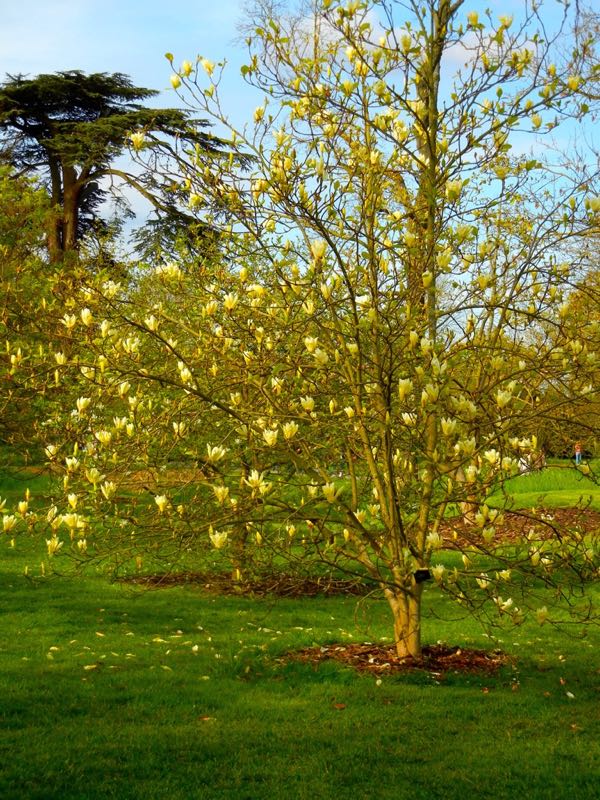

Growth speed: SlowĮvergreen: No deciduous Flowering Period: Produces pale yellow flowers in mid to late Spring, leaves arrive towards the end of the flowering period Foliage: Mid to dark green large leaves.Ī relatively easy plant to maintain, that has no real specific requirements. Any broken or damaged branches can be removed as they occur. Magnolia Yellow Lantern Magnolia has very large lemon-yellow flowers which appear in late spring and last for a long time.
#Magnolia yellow lantern tree full#
Pruning: Not really a necessity, if you choose to it should be done in Mid-summer when the tree is in full leaf.
#Magnolia yellow lantern tree professional#
But even after 10 years this plant will only have reached 1.5 metres Image Magnolia (Magnolia Yellow Lantern) - 638161 - Professional images of plants and gardens for use in magazines, books, calendars, brochures and other. Location Map for Magnolia Yellow Lantern (Yellow Lantern magnolia) Map. It can grow up to 7-8 ft tall and 5-6 ft wide, making it an ideal addition to any garden or outdoor space.

Its fragrant blooms appear in early summer, typically before its large leaves emerge. Suitable for container planting: Yes can adapt to being grown in a pot.Įventual height and spread: In absolute ideal conditions upto 3 metres with an 2 metres spread. acuminata Moegi Dori - Yellow-Green Bird Cucumber-Tree Magnolia Moegi. About Magnolia 'Yellow Lantern' Magnolia 'Yellow Lantern' is a deciduous shrub with a beautiful, classic magnolia flower in a unique yellow color. It typically grows as an upright, single-trunked, pyramidal to oval tree that matures over time to 25-30’ tall. Ensure the planting area has a good supply of water and does not dry out totally or become waterlogged. x soulangeana ‘Alexandrina’) is a yellow-flowered magnolia hybrid. This variety will adapt to almost any type, even ones with a high lime content. The large flower buds are tomentose, opening. Yellow Lantern is an upright, single-stemmed tree which is fertile. Soil: Whilst most Magnolia prefer an acidic soil. acuminata var.subcordata as the seed parent. It has a low canopy with a typical clearance of 3 feet from the ground, and is suitable for planting under power lines.


Yellow Lantern Magnolia will grow to be about 20 feet tall at maturity, with a spread of 15 feet. Preferably plant somewhere away from exposed windy sites and somewhere that avoids frost as much as possible, this is more important in early spring than during the winter as late harsh late frosts may damage furry buds and the flowers. Yellow Lantern Magnolia is recommended for the following landscape applications Accent General Garden Use Planting & Growing. This is a relatively low maintenance tree, and should only be pruned after flowering to avoid removing any of the current season's flowers. Its relatively coarse texture can be used to stand it apart from other landscape plants with finer foliage. For the first 6 to 12 months after planting, both types will benefit from mulch and regular irrigation during warm or dry weather.Planting position: Magnolia Yellow Lantern prefer a good sunny spot but will cope well with light partial shade. Yellow Lantern Magnolia is a deciduous tree with a strong central leader and a shapely oval form. Evergreen magnolias are best planted in early spring.


 0 kommentar(er)
0 kommentar(er)
